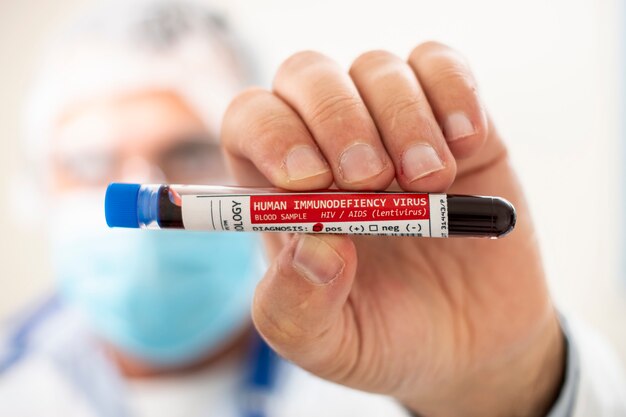Understanding Blood Cancer: Symptoms and Key Insights
When it comes to diseases that capture both concern and curiosity, blood cancer ranks high on the list. Its symptoms can often be subtle, appearing as routine ailments, making awareness crucial. This article explores the symptoms of blood cancer, providing insights that enable readers to understand this complex condition better.
The Silent Signals: Recognizing Blood Cancer Symptoms
Blood cancer is an umbrella term for malignancies affecting blood, bone marrow, and lymphatic systems, with the main types being leukemia, lymphoma, and myeloma. Each type presents symptoms that might initially seem commonplace, which is why knowledge and vigilance are essential.
Common Symptoms Across Blood Cancer Types
Blood cancer can manifest in diverse ways, but some symptoms are common across different types due to the nature of blood cell production and immune system impact:
- Fatigue and Weakness: Persistent tiredness that doesn't resolve with rest.
- Fever and Night Sweats: Unexplained fevers and excessive sweating, particularly at night.
- Unexplained Weight Loss: Sudden weight loss without changes to diet or exercise.
- Frequent Infections: Recurring infections due to compromised immunity.
- Easy Bruising and Bleeding: Bruises with minimal trauma, frequent nosebleeds, or gum bleeding.
Leukemia Symptoms
Leukemia is a cancer of the body's blood-forming tissues, including the bone marrow and the lymphatic system.
- Anemia: Decrease in red blood cells leading to fatigue and pallor.
- Bone Pain: Discomfort or pain in the bones or joints.
- Swollen Lymph Nodes: Usually painless swelling in the neck, armpits, or groin.
Lymphoma Symptoms
Lymphoma affects the lymphatic system, a crucial component of the immune system.
- Swollen Lymph Nodes: Noticeable lumps, often enlarging over time.
- Itching: Unexplained skin itching without a rash.
- Cough or Shortness of Breath: If lymphoma affects nodes in the chest.
Myeloma Symptoms
Myeloma impacts plasma cells, a type of white blood cell involved in immune response.
- Bone Pain: Particularly in the back or ribs, may indicate bone damage.
- Frequent Thirst: A sign of elevated calcium levels in the blood.
- Numbness or Weakness: Particularly in the legs, indicative of nerve involvement.
Why Do Symptoms Seem So Varied?
The symptoms of blood cancer stem from the disruption of normal blood cell functions and the enlargement of cancerous cells. Understanding why symptoms vary offers solace and a clearer picture of how these cancers operate:
Impact on Blood Cell Functions
- Red Blood Cells: A decrease leads to anemia, causing fatigue and pallor.
- White Blood Cells: Dysfunction increases infection susceptibility.
- Platelets: Reduction results in bleeding tendencies and easy bruising.
Immune System Implications
A compromised immune system is a hallmark of blood cancers, leading to recurring infections and slow-healing wounds. This symptom alone can often prompt further investigation into underlying causes.
Delving Deeper: Specific Symptoms for Diagnosis
While general symptoms provide clues, specific symptoms help hone in on the type of blood cancer:
Acute vs. Chronic Leukemia
- Acute Leukemia: Rapid onset, severe symptoms including profound fatigue, frequent fevers, and swift weight loss.
- Chronic Leukemia: Slow progression, often detected incidentally during routine blood tests due to mild symptoms.
Non-Hodgkin vs. Hodgkin Lymphoma
- Non-Hodgkin Lymphoma: More common, with varied symptoms based on lymph node involvement.
- Hodgkin Lymphoma: Characteristic symptom includes a pattern of lymph node enlargement.
Differentiating Myeloma
Myeloma often presents with multi-system symptoms due to plasma cell impacts on bones, kidneys, and nerves, highlighting the complex interplay of cancer progression.
Practical Steps: When to Seek Medical Attention
Understanding when to consult healthcare professionals is crucial. Awareness combined with proactive measures empowers individuals to take control of their health.
Warning Signs to Watch
- Persistent Symptoms: If fatigue, fever, or weight loss persist, consider medical evaluation.
- Family History: A background of blood cancers warrants vigilance and potential screening.
Partnering with Healthcare Professionals
Regular check-ups, maintaining open communication about health changes, and leveraging preventive healthcare play pivotal roles in early detection and peace of mind.
Living with Knowledge: The Empowerment Approach
Knowledge, they say, is power. This mantra resonates deeply in the context of understanding blood cancer symptoms.
Awareness as a Tool for Prevention
- Education: Stay informed about symptoms and maintain regular awareness.
- Community Resources: Engage with support groups and community services focusing on cancer education.
Taking Charge of Wellness
While understanding symptoms is crucial, it is equally important to focus on overall wellness through:
- Healthy Lifestyle Choices: Nutrition, exercise, and stress management play vital roles in overall health.
- Regular Health Screenings: These remain an indispensable prevention and early detection tool.
Conclusion Insight: Awareness Enhances Quality of Life
Recognizing the symptoms of blood cancer equips individuals with the ability to seek timely medical help. While many symptoms overlap with everyday ailments, informed vigilance can significantly influence outcomes. By prioritizing awareness, individuals not only uncover clarity in potential health concerns but also lay the foundation for empowered health choices.
Summary of Key Insights and Tips
- 🔍 Be Observant: Keep an eye on persistent symptoms like fatigue, weight loss, and infections.
- 💬 Communicate with Healthcare Providers: Don't hesitate to consult professionals if symptoms linger.
- 🩺 Leverage Regular Health Check-Ups: Routine screenings can aid in early detection.
- 🏋️♀️ Maintain a Healthy Lifestyle: Enhance immune function and overall health with good nutrition and exercise.
- 👥 Engage in Community Resources: Utilize educational and support networks for additional guidance and support.
By staying informed and proactive, you can navigate the complexities of blood cancer symptoms with confidence and resilience.

Related Articles
- Are Breast Cancer Lumps Painful
- Are Chills a Sign Of Cancer
- Are Colon Spasms a Sign Of Cancer
- Are Lytic Lesions Always Cancer
- Are Polyps Cancer
- Can a Blood Test Detect Cancer
- Can a Ct Scan Detect Cancer
- Can a Dexa Scan Show Cancer
- Can a Gastric Emptying Scan Show Cancer
- Can a Lung Biopsy Cause Cancer To Spread
